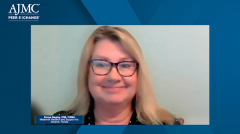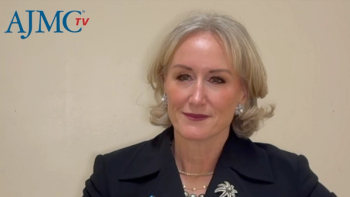
Guiding Patients Through Complex Treatment Decisions
An expert reviews best practices for assisting and guiding patients in their journey when navigating complex treatment decisions and options.
Episodes in this series

Sonya Negley, IOM, CSMA:It’s really important for all the patient advocacy organizations to [firstly] not be the physician, not be the oncologist—that is critical. Making sure each patient does what’s best for them is the most important thing. [Make] sure they feel comfortable speaking with their care team. [Make] sure their care team understands the language that’s used in metastatic breast cancer—and it is very different from other breast cancers—but [make] sure they understand what that is and how it equates to their care. [If patients don’t feel comfortable with their care team, help them] search for the best-qualified person to serve them.
We tell people all the time [that] we have brilliant clinicians and brilliant oncologists, but they can’t be the experts in every cancer if they’re seeing more than [patients with] breast cancer or [with] metastatic breast cancer. It’s hard to be the expert, so if we can help guide or educate patients on what is available or what’s coming new to the market, it also helps patients take responsibility to guide their oncologist.
And probably the most important thing is that patients feel comfortable sharing what’s going on with their care team, because it’s a lot more than just treatment and treatment [adverse] effects. It might be the need for additional support. Can you imagine being diagnosed with a terminal disease? It’s definitely hard on anybody’s psychological well-being, so, it’s very important that they have a care team that listens and hears them and understands what they need both physically, from a treatment standpoint, and mentally.
All those things really come together, and our role is to share what the latest information is. It’s not to say, “You need to do this particular treatment,” or “If you’re progressing, you need to bridge to this treatment.” Our role is to say, “These are the options that are available to you, and they should be discussed in detail with your care team [so] you can make the best choice with your oncologist.” We always say the best patient is the educated patient. When we say that, [it] means just know your disease, know what your subtype is, know what’s available out there, and help guide your care team to the best possible solution for you.
Transcript edited for clarity.
Newsletter
Stay ahead of policy, cost, and value—subscribe to AJMC for expert insights at the intersection of clinical care and health economics.










